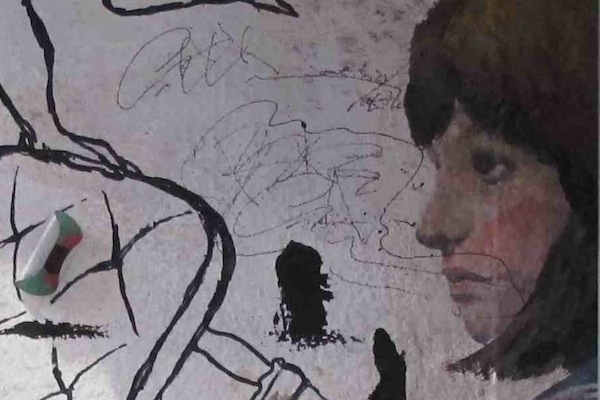 If you’re a member of the Friends of Cordite FB group, you’re probably already keenly aware of the fact that the second part of Oz-Ko (Cordite 35.1 Hoju-Hanguk) is now online, thanks to FB having recently forced us to upgrade our group settings and, in the process, allowing our RSS feed to inadvertently spam the kim-chi out of all our members. So, for those who’ve been drowning in the hangul, our sincere apologies.
If you’re a member of the Friends of Cordite FB group, you’re probably already keenly aware of the fact that the second part of Oz-Ko (Cordite 35.1 Hoju-Hanguk) is now online, thanks to FB having recently forced us to upgrade our group settings and, in the process, allowing our RSS feed to inadvertently spam the kim-chi out of all our members. So, for those who’ve been drowning in the hangul, our sincere apologies.
Of course, if you’re not a member of said group, you might still be interested to learn that Cordite 35.1: Oz-Ko (Hoju-Hanguk) contains forty new poems by twenty Australian poets, each of which is published in both English and Hangul. The task of bringing these poems to you has been nothing short of monumental. Starting with the combined efforts of twenty poets whose work was selected for this stage of the issue, followed by the Cordite editorial team’s struggles with the challenges of bi-lingual layout and formatting, and finally of course the crucial role played by our two Korean translators – 김재현 (Kim Gaihyun) and 김성현 (Kim Sunghyun) – it’s been a labour of love, and we hope you enjoy the results.
Publishing an issue of Cordite in English and Hangul has posed challenges we never thought we would come up against. In addition to the above-mentioned formatting and layout issues, the absolute incompatibility between Hangul Word Perfect (.hwp) and common (Western) document formats has given us grief to no end. Without the handy intermediary (translator?) of an application like Open Office, it’s unlikely that the issue could have been put together at all. Despite this – and despite my slightly gloomy prognostications in the editorial for Oz-Ko (Envoy) – it’s been really satisfying to see the works sitting together on the page, and to finally publish these works for your reading pleasure.
I’m writing this post from my room in the Yeonhui Writers Village in Seoul, which is the base for Cordite’s two week poet’s tour of Korea. The first week of the tour has, in summary, been intense and rewarding. We’ll shortly be bringing you images, reports and other impressions of our stay, but highlights so far have included a fascinating visit to the former residence of maverick Korean poet Yi Sang; a fantastic meeting and exchange of poems in English and Hangul with four Korean poets (Yi Kyong-lim, Kim Ki-taek, Shim Bo-seon and Kim Un, all of whose work will be featured in stage three of Oz-Ko); a lunch with staff from the Korea Language Translation Institute (KLTI) and the four Korean poets who will travel to Australia later this year; a packed reading to students and staff at Seoul’s Ehwa Women’s University; and a bizarre if not slightly harrowing visit to the infamous Demilitarized Zone (DMZ) on the border between North and South Korea.
To conclude this short, ‘bridging’ editorial, I’d like to acknowledge the support of the KLTI in co-funding the translations in this issue, as well as our Australian supporters; the friendly and welcoming staff at Yeonhui Writers Village, including the super-helpful Lauren; and of course my fellow tourees Ivy Alvarez, Terry Jaensch, Nic Low and Barry Hill, whose camaraderie this week in the face of both technical and cultural challenges has been a lifesaver.
So, on with the poetry.














